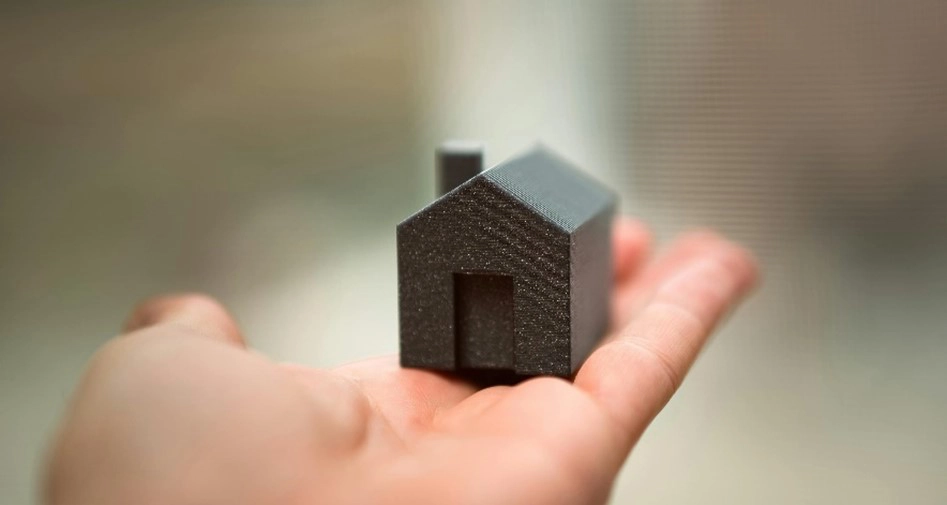
Lenders love sending direct mail, suggesting that deed holders borrow against the value of their homes. And you might be wondering: Maybe accessing some cash could really let me meet personal goals.
Your home’s equity — your home’s value, minus what you owe on your current mortgage — is typically the collateral for the lender. This means a lender has dibs on your deed if at any point in the future you can’t make your payments. In some situations, you might benefit from the decision. But some borrowing options do put your title at risk.
Here, we’ll zero in on what to watch when tapping equity — when you have a specific goal in mind for the funds.
I Want to Acquire an Investment Property. Home Equity Loan?

OK. A home equity loan (a.k.a. HEL, or HELoan) is called a second mortgage — and yes, it can help you acquire another deed. You’ll get a lump-sum payment based on a portion of your home’s value, which you can then put into a down payment on the new property. Then, pay the loan back in installments.
Just know that you’re swapping an interest in your property for debt. That raises your debt-to-income ratio. Plus, accumulated debt on the title can put the deed holder underwater if property values drop.
Getting a mortgage for the second property? You end up with two mortgages + a HEL. Some investors want the HEL to offset the costs of higher-interest investment property mortgages. Talk with a mortgage consultant to find out if this could pay off for you.
And of course, the borrower must pay off the debts on a home when or before selling it.
Note: Taxes for investors are different. Consult with your tax pro before financing an investment home.
I Need to Pay Off Credit Card Debt. Can Home Equity Rescue Me?
Deed holders who mull the idea of getting a HELOC to pay off higher-interest debt should proceed with extreme caution.
Credit card debt has the benefit of being something a homeowner can have discharged by a bankruptcy court. Not so for a lien on the home.
And getting a HELOC can have the frustrating effect of taking on yet another account without getting to the cause of the money shortfalls for the credit cards.
Can I Swap Some Home Equity Out for My Kid’s College Costs?
Yes, but why?
Students may apply for fixed-interest student loans from the U.S. government. These are designed to be preferable to taking out loans on a parent’s home. So, student loans have certain built-in safeguards, and may become eligible for loan forgiveness (subject to political winds, of course).
See how much your child can obtain from a federal loan. If it doesn’t meet your family’s financial needs, you might add a Parent PLUS loan. Parent PLUS comes with heavier fees, and the interest tends to be higher too. Government loans can potentially qualify for loan forgiveness, depending on current policies and politics.
What about a home equity line of credit for tuition? It could work in cases where the parent can close the account successfully within a few years.
Use caution when potentially putting your own retirement funds in jeopardy. And no matter how you proceed, it’s always a good idea to be sure the tuition is a good value for the money. You might both be enlightened if you research best-value colleges together with your child.
I Need to Make Home improvements. Is Borrowing Against My Equity a Sound Idea?
Here again, as with any debt obligation, proceed with caution. You may be surprised at how rare it is to get a good return on investment for big home improvements. “Sometimes,” writes Carl Vogel for This Old House, “Minor updates can offer better ROI than major overhauls.”
But say you’re in this because you need the home improvements now. Borrowers appreciate the flexibility in a home equity line of credit (HELOC). It has a credit card feel. Compared against loans, lines of credit have higher rates and costs. But it can work well when a borrower is prepared to pay it off quickly.
If you need a large, lump sum, a cash-out refinance is another option. It’s a way to get cash out while refinancing to a larger, longer-term mortgage.
Check with your tax pro on possible changes to the taxable value of the home. Ask how to properly declare related details on your returns. Ask, too, about potential HELOC interest tax deductions for home improvements or additions.
Many HELOC borrowers lean into safety by using smaller HELOCs than they need to cover the work. So it’s partial cash, partial debt. This is one way to avoid getting overwhelmed by the interest.
I’d Like to Start a Business. Can My Home Equity Fund My Startup?
Deed-holding entrepreneurs have an advantage. Their home deeds provide access to cash-out refinances, home equity loans, and HELOCs.
If you’ve built up a good deal of home equity, a home equity product could come at a lower interest rate than a personal loan. But there’s a downside. Taking equity out means you won’t have as much of a buffer against trouble caused by drops in your home value or the value of your other assets.
Look into:
- Home equity loans. At the time of this writing, the HEL rate is under 10%. The term of the loan varies; some are ten years, others 20 or more.
- Home equity lines of credit. Rates fluctuate. First, there’s a draw period to take money out. A long repayment period follows. Borrowers can control their risks by using the accounts sparingly and closing them early.
- Government loans. When you’re ready to expand, you could apply for a microloan from the Small Business Administration. But watch the interest rates on these. They can be as high as 13%.
Note that borrowing against home equity shows up in your personal credit profile.
A Word (or Two) to the Wise
A successful loan starts with adding up the costs and benefits carefully. Borrowers will want to know fees and closing costs. Will they be responsible for large repayments at the end of the loan? They also want to factor in any necessary appraisals or reappraisals, and the opportunity cost in time and resources needed to request and work with the account.
When holding a deed makes another dream come true, that’s a triumph. But the rewards don’t come without risks. The economy is always subject to change. With the deed to a home on the line, repaying a debt can suddenly turn into a person’s #1 goal.
With all this in mind, consult a financial advisor for guidance. Deeds.com cannot provide financial or legal advice, and we want you to meet your financial goals safely.
Supporting References
Maya Dollarhide for Bankrate via Bankrate.com: How to Use Your Home Equity to Invest in Your Hot Business Idea (Sep. 30, 2024).
Katie Ziraldo for Rocket Mortgage, LLC via RocketMortgage.com: Can I Use A Home Equity Loan To Buy Another House? (Sep. 7, 2024).
Liz Weston for NerdWallet™: Five Good Reasons to Tap Your Home Equity (updated Jun. 20, 2016).
And as linked.
More on: Home equity borrowing – risks for deed holders
Photo credits: John Guccione/Advergroup and Jakub Zerdzicki, via Pexels/Canva.
